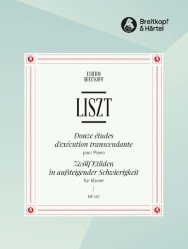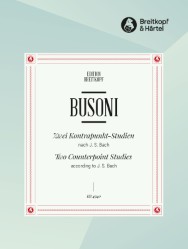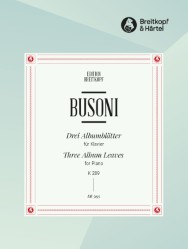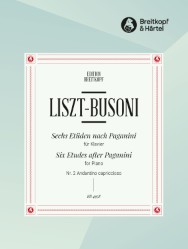Venezuelan Treasures for Piano Volume 3 Federico Ruiz
3 Valses, Micro-Suite, Nocturne

Composer: Ruiz, Federico
Instrumentation: Piano Solo
Editor: Clara Rodriguez
Publisher Clifton Edition
Venezuelan Treasures for Piano Volume 3 contains contrasting works by Federico Ruiz spanning quite a large and rich period of his compositional output that goes…
Page ? of ?
Digital Download – PDF
Shipping costs: No shipping
R.R.P £10.50
Our Price: £8.93




